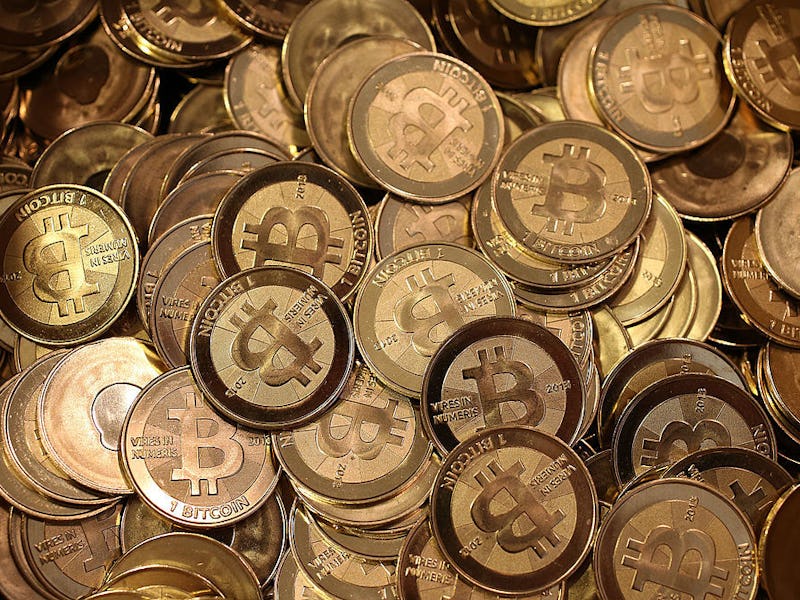The Government Will Auction Off a $1.6 Million Bitcoin Stash
Grab a bargain... and a piece of history.

The U.S. Marshals service is auctioning off over $1.6 million of forfeited bitcoins in a one-day event on August 22. The huge chunk of digital currency mostly comes from the treasure troves of black market retailers like Silk Road, a dark web drug selling site.
The auction, which runs online from 8 a.m. to 2 p.m. Eastern, will sell off the 2,719.32669068 bitcoins as one block. At the current exchange rate for bitcoin, that’s approximately $1,601,656 worth of cryptocurrency that will be on the auction block for the highest bidder.
The seized cryptocurrency came from numerous court cases, but one in particular stands out. United States v. Ross William Ulbricht sent the founder of drug marketplace Silk Road to prison for life. Ulbricht was convicted of money laundering, computer hacking, and conspiracy to traffic narcotics for his involvement in Silk Road. The court decision also forced Ulbricht to forfeit “any and all property obtained directly or indirectly as a result of any such violation.”
U.S. v Ulbricht attracted widespread publicity, and the shutdown of Silk Road sparked a debate about the site’s impact and alerted other hackers and deep web retailers to the real consequences of their profession. Deep Web, a documentary made about the case, was heavily criticized by Ars Technica. One programmer developed a kill switch program called usbkill, which automatically shuts down a computer when a foreign device is plugged in. During government seizures, agents will often place “mouse jiggler” devices or other USB inputs to keep a computer awake and unlocked so their analysts can search the contents without having to crack passwords or encryption.
Max Dickstein stands with other supporters of Ross Ulbricht, the alleged creator and operator of the Silk Road underground market, in front of a Manhattan federal court house on the first day of jury selection for his trial on January 13, 2015 in New York City.
However, Ulbricht’s case isn’t biggest source of bitcoins in the Marshals’ stash. The Marshal service told Reuters that just 2.8 bitcoins came from the Ulbricht case. Meanwhile, 1,294 of the bitcoins came from one of Silk Road’s largest dealers, Matthew Gillum, and a further 65 bitcoins came from ex-DEA agent Carl M. Force, who pled guilty last year to stealing $700,000 worth of bitcoin while investigating Silk Road.
Silk Road was one of the most high-profile uses of bitcoin, and the currency’s facilitation of illegal transactions influenced bitcoin’s perception in the public eye. The auctioning of some of the Silk Road bitcoins is a big moment in the cryptocurrency’s history.
But while $1.6 million in digital currency might look like a tempting prize to bid on, want to hold off if you’re more interested in grabbing a bargain. Bitcoin is currently trading at a fairly high price of $586, down from its recent June peak of $750 but still quite high. By comparison, this time last year bitcoin was around the $260 mark. Unless the coins sell for way less than market value, it might not be a great buy (even if you have a cool million and a half lying around).
Even entering the auction is an enormous investment. There’s an up-front $100,000 deposit required, and as the coins are being auctioned as a single block, there’s no room for half measures.
Bidders who still feel like trying their luck have until noon Eastern on August 18 to apply, sending a copy of the application form and photo ID, as well as a receipt to prove the money was wired over.
The winner of the auction will have a massive amount of volatile cryptocurrency on their hands. While it has the potential to go up in value, they’re also holding a large piece of cryptocurrency history, even if that only amounts to some numbers in a computer registry. It’s an interesting philosophical question — if the currency is virtual, is it really possible to “own” the bitcoins as a piece of cryptocurrency history?